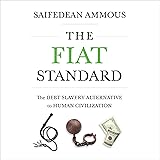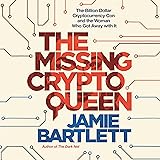Mark Cuban’s Vision: Unpacking the True Potential of Blockchain and Cryptocurrency in Enterprise Solutions
The discourse surrounding cryptocurrency and blockchain technology continues to evolve, prompting discussions about its legitimate utility beyond speculative trading. In this context, the insights shared by prominent figures like Mark Cuban are particularly illuminating. His recent conversation on Kevin O’Leary’s YouTube channel, as highlighted in the video above, offers a compelling perspective on the inherent value and transformative power of distributed ledger technology.
This article delves into the core aspects of his analysis, examining the capacity of blockchain to revolutionize corporate auditing, enhance transparency, and redefine financial systems. Attention is also given to the nuances of decentralization in enterprise applications and the broader regulatory shifts impacting Bitcoin and other digital assets. A deeper understanding of these facets is crucial for anyone navigating the intricate landscape of digital finance and innovation.
1. Blockchain’s Intrinsic Utility Beyond Speculation
At its foundational level, blockchain is best understood as a sophisticated form of software, functioning as a distributed database. This characteristic makes it fundamentally distinct from traditional data storage systems. The management of this database is performed independently across a network, which inherently confers upon it a unique utility and intrinsic value. This value is often overlooked when the focus remains solely on the speculative price movements of various cryptocurrency tokens.
The inherent combination of decentralization, immutability, and cryptographic security transforms blockchain into a powerful tool. It provides a tamper-proof record-keeping system that can be accessed and verified by multiple parties simultaneously. Such attributes position it as more than just a technological novelty; it is identified as a robust utility with significant implications for a multitude of industries. The differences between specific blockchain implementations, such as those powering Bitcoin versus Ethereum, are significant, yet the underlying distributed ledger technology (DLT) consistently offers a baseline intrinsic value.
2. The Enron Analogy: Revolutionizing Corporate Auditing with Blockchain
Mark Cuban’s illustrative example involving the Enron scandal effectively underscores the transformative potential of blockchain in corporate governance and auditing. Imagine a scenario where a company’s general ledger system was built upon a blockchain, integrated with advanced auditing capabilities. In such a system, an external, truly independent auditor would be empowered to scrutinize different segments of the ledger in real-time.
Instead of a single auditing firm, as was the case with Arthur Andersen for Enron, a blockchain-driven system could facilitate the involvement of three or more distinct, independent auditors. These entities would be granted permission to independently review specific ledger segments. Any attempt to manipulate financial data would necessitate deceiving all these independent parties simultaneously, which would be an incredibly difficult, if not impossible, task. The transparency and immutability offered by blockchain would thus act as a powerful deterrent and detection mechanism, significantly reducing the scope for fraud and ensuring genuine financial accountability.
3. The Decentralization Spectrum: Navigating Enterprise Blockchain Solutions
A critical discussion point arising from the video pertains to the degree of decentralization required for enterprise solutions. While blockchain technology promises enhanced transparency and security, the optimal level of decentralization often depends on the specific use case. For instance, Bitcoin, with its 10,000-plus nodes validating every transaction, is designed to be as decentralized and censorship-resistant as possible, making it ideally suited for its role as digital money.
However, many enterprise blockchain solutions are being developed with a more centralized architecture. These might feature a limited number of corporate validators, sometimes only a handful, or specific permissioned participants. While such designs can offer benefits like increased transaction speed and scalability, a trade-off in terms of genuine independence and censorship resistance is introduced. A blockchain controlled by a single entity, or a small consortium, risks becoming a mere buzzword, failing to deliver the core benefits of true distributed ledger technology. Businesses and investors must critically assess whether a proposed blockchain implementation is truly decentralized, open-source, and permissionless, or if it merely repackages existing centralized systems under a new technological facade.
4. Bitcoin’s Evolving Role as Legal Tender and Financial Instrument
The legal landscape surrounding cryptocurrency is undergoing significant transformation, as evidenced by a landmark decision from a French court. On February 26th, the Commercial Court of Nanterre ruled that Bitcoin can be equated to a legal form of money, specifically recognizing it as fungible and interchangeable. This characteristic is fundamental to traditional money and establishes a crucial precedent for digital assets within the European legal framework.
The scope of this decision is considerable, as it facilitates the treatment of Bitcoin akin to other financial instruments. This legal clarity is expected to significantly ease and expand various Bitcoin transactions, including lending and repo transactions, which are growing in prominence. Such developments are instrumental in favoring the liquidity of the cryptocurrency market, opening up new avenues for its integration into mainstream finance. While a court decision does not constitute a full legislative act, it sets a powerful precedent, potentially influencing central banks and regulatory bodies to reconsider their stance on digital currencies as legitimate forms of money and valuable assets within capital markets.
5. The Future Landscape: Cardano and Decentralized Innovations
The trajectory towards a truly decentralized future is being shaped by various innovative blockchain projects and gaining recognition from established industry leaders. An notable endorsement was observed on March 3rd, when the legal leader of PwC, one of the ‘Big Four’ auditing firms, expressed strong support for Cardano. This prominent figure asserted that decentralization represents the future of technology and identified the Cardano Foundation, alongside the team at IOHK (the blockchain firm behind Cardano and Ethereum Classic), as a crucial part of this evolving landscape.
Cardano is specifically designed as a third-generation blockchain platform, focusing on scalability, interoperability, and sustainability for decentralized applications (DApps) and smart contracts. Such recognition from a global professional services network like PwC highlights a growing acceptance of advanced blockchain protocols as vital components of future digital infrastructure. The ongoing development of robust, peer-reviewed blockchain ecosystems, like Cardano, is expected to drive further adoption and cement the role of cryptocurrency and DLT in various sectors, from financial services to supply chain management and beyond, contributing to a more transparent and efficient digital economy.







